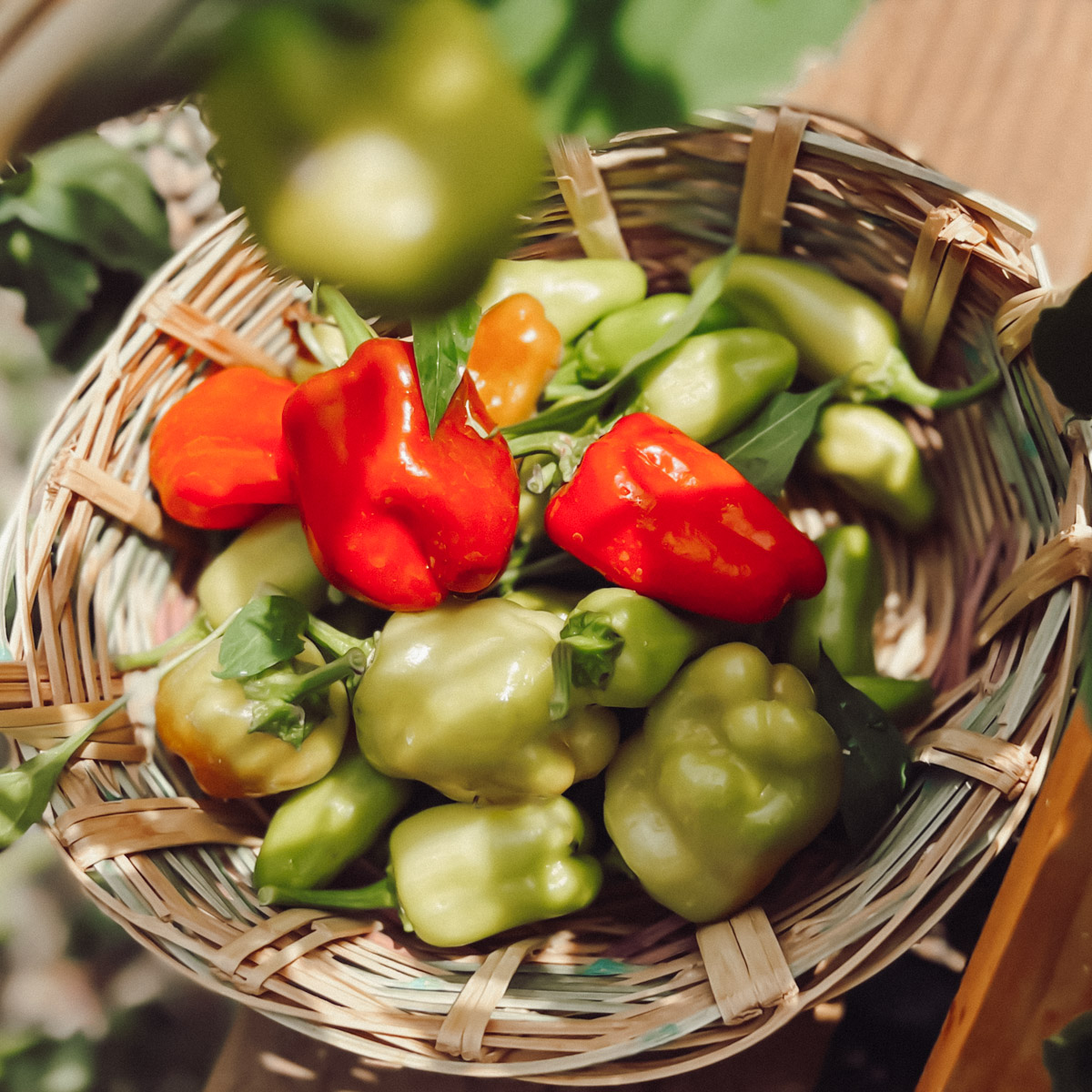Best Fertilizers for Peppers: Make The Most Of Plant Health and Yield
Best Fertilizers for Peppers: Make The Most Of Plant Health and Yield
Blog Article
Organic Vs. Synthetic Fertilizers: Which Is Best for Supporting Healthy And Balanced Pepper Plants?
In the realm of nurturing healthy and balanced pepper plants, the selection in between natural and synthetic plant foods stands as a crucial choice with far-ranging effects. While both alternatives goal to give crucial nutrients to sustain plant development, the subtleties of their effect on the soil, plant health, and the setting trigger a dispute that echoes throughout the gardening area. Recognizing the unique advantages and possible risks of each fertilizer type is crucial for pepper farmers looking for to enhance their yields while keeping an eco-conscious and sustainable approach.
Advantages of Organic Fertilizers
Organic plant foods provide an environmentally-friendly and sustainable approach to nourishing pepper plants, providing crucial nutrients without making use of artificial chemicals. These natural plant foods are stemmed from natural sources such as garden compost, manure, bone meal, and seaweed, advertising soil wellness and biodiversity. Unlike synthetic plant foods, organic alternatives release nutrients gradually, guaranteeing a constant and balanced supply for pepper plants to flourish.
One significant advantage of natural plant foods is their ability to enhance dirt structure and water retention. By improving dirt health and wellness, organic plant foods promote helpful microbial activity, which helps in nutrient uptake by pepper plants. Additionally, organic plant foods reduce the danger of chemical run-off, protecting water sources from air pollution and protecting the setting.
Moreover, natural fertilizers contribute to lasting soil fertility by advertising the development of valuable soil microorganisms. These microorganisms aid break down organic issue, launching nutrients in a form that is quickly obtainable to pepper plants. best fertilizers for peppers. By fostering a healthy dirt ecological community, organic fertilizers support sustainable pepper farming practices that benefit both plants and the environment
Disadvantages of Synthetic Plant Foods
Artificial fertilizers, in contrast to their natural equivalents, position various disadvantages when made use of to nurture pepper plants, affecting both plant health and ecological sustainability. One significant disadvantage of synthetic plant foods is their propensity to leach nutrients from the soil promptly.
In addition, the overuse of artificial fertilizers can add to water air pollution. Excess plant foods not taken in by plants can get rid of right into water bodies, causing eutrophication, where algae blooms diminish oxygen degrees in the water, harming marine life. In addition, artificial plant foods are usually stemmed from non-renewable resources, such as nonrenewable fuel sources, adding to carbon exhausts and environmental degradation during their production.
Nutrient Absorption Contrast
Reliable nutrient absorption plays a critical duty in the general wellness and growth of pepper plants. When comparing organic and synthetic fertilizers in regards to nutrient absorption, organic plant foods have the advantage of offering an extra balanced and slow-release source of nutrients (best fertilizers for peppers). Organic plant foods include a range of macro and trace elements that are not only helpful for the plants but also advertise healthy and balanced dirt microbial activity, which aids in nutrient uptake. On the various other hand, artificial plant foods frequently supply a fast launch of nutrients, which can lead to leaching and overflow, leading to reduced nutrient absorption prices by the plants.
Additionally, natural plant foods improve dirt framework and water retention ability, permitting pepper plants to access nutrients a lot more successfully. This better soil quality promotes origin development, allowing much better nutrient absorption. Artificial plant foods, although initially increasing plant development as a result of their high nutrient focus, might impede long-lasting nutrient absorption by degrading soil wellness with time.
Ecological Effect Factors To Consider

On the other hand, artificial fertilizers, although frequently more promptly offered and concentrated to plants, can have detrimental impacts on the environment otherwise used correctly (best fertilizers for peppers). Their manufacturing calls for high energy inputs, bring about greenhouse gas discharges and adding to environment adjustment. The overflow of excess artificial plant foods can pollute water sources, leading to eutrophication and damaging water ecological communities.
Finest Fertilizer Practices for Peppers
To achieve this, it is important to follow best fertilizer practices customized to the details demands of pepper plants. One crucial technique is to execute a dirt examination before applying any type of fertilizers.
Another important practice is to feed pepper plants at the correct time. Commonly, peppers take advantage of getting fertilizer at planting and then again when they begin to blossom. Over-fertilizing can cause nutrition imbalances and damage the plants, so it is essential to adhere to suggested application rates.
Additionally, choosing a well balanced plant food with an NPK ratio that suits pepper plants' requirements is basic. Organic plant foods, such as compost or manure, can be superb selections as they release nutrients slowly and boost soil structure with time. Nevertheless, synthetic plant foods can supply a quick nutrient boost when required. Ultimately, incorporating synthetic and organic plant foods sensibly can aid nurture healthy and balanced pepper plants while lessening environmental influence.
Final Thought

Organic plant foods provide a lasting and environmentally-friendly strategy to nourishing pepper plants, offering crucial nutrients without the use of artificial chemicals. Unlike synthetic fertilizers, natural options launch nutrients slowly, making certain a balanced and constant supply for pepper plants to thrive.
Artificial plant foods, in contrast to their organic equivalents, posture different negative aspects when used to nourish pepper plants, affecting both plant wellness and ecological sustainability. When comparing natural and synthetic plant foods in terms of nutrient absorption, natural plant foods have click here to find out more the benefit of providing a more well balanced and slow-release resource of nutrients.In addition, natural plant foods enhance soil structure and water retention capacity, allowing pepper plants to gain access to nutrients much more effectively.
Report this page